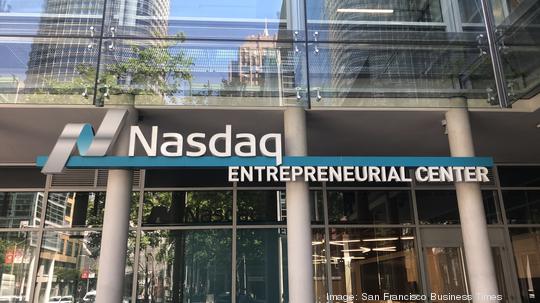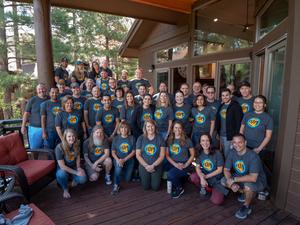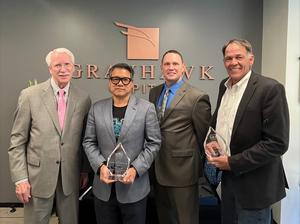
It's starting to get a little harder for startups raising funding as venture firms become more selective about their investments, but for underrepresented founders, it's always been tough.
The numbers fluctuate a smidge from quarter to quarter and year to year, but the reality is that white male founders consistently close most of the venture deals in the U.S. annually.
Many investors, founders and observers agree that something needs to change, but few are doing anything tangible to get there.
A new coalition led by the Nasdaq Entrepreneurial Center, the data and exchange corporation's nonprofit arm, is looking inwards to find solutions. On Wednesday, the coalition launched the Venture Equity Project, a two-year initiative that aims to identify barriers to funding, and remove them, for underrepresented founders particularly at earlier stages.
It's "a radical collaboration approach to researching and data aggregation to make informed interventions and recommendations at a global layer on how to really move capital," Nicola Corzine, the executive director of the Nasdaq Entrepreneurial Center, told me. "It's not just about talking about it, right? It's really how to measure, track and trend the movement of capital in support of this incredible, diverse talent."

JP Morgan Chase is providing support and 10 additional organizations across the U.S. and the United Kingdom have signed on as partners:
- Stanford University
- Carnegie Mellon University
- Penn State
- Camelback Ventures
- Houghton Street Ventures
- Capital Enterprise UK
- Extend Ventures
- The Institute for Entrepreneurial Leadership
- ParentPreneur Foundation
- Vets In Tech
The coalition’s members have been quietly working on the first phase of the project for the past six months, primarily focused on research and organizational matters. The next six months will consist of building out the project based on that research.
In the second year, the partners will begin implementing what they've learned and create reports based on their findings.
Ultimately, their goal is to create an open source database that any organization can use to help eliminate systemic barriers to funding whether they are operating in a research capacity (such as Stanford University), in a practical capacity like a venture firm or in a policy capacity.
As a dominant player in the venture capital industry nationally, the Bay Area holds a lot of power when it comes to writing checks. And yet, even here there are stark disparities in funding, as well as representation within venture firms themselves.
The Bay Area organization BLCK VC estimates that only 2% of venture partners are Black.
Women represent 17% of general partners at Bay Area venture firms, according to a 2021 report from PitchBook, slightly above the national average of 15%. And nationally, startups with at least one female founder started rebounding from pandemic lows faster than the national average, but all-female founding teams still got a minuscule amount of funding — in the Bay Area, they only got 1.7% of the $93.6 billion raised here by late 2021.
Funding for Latinx founders surged 143% nationally last year to $6.8 billion, according to a Crunchbase report on early-stage VC funding, but that still made up only 2.1% of all funding and around three-quarters of that small share went to later-stage companies.
And Black founders received only 1.2% of all venture funding in the first half of 2021 despite quadrupling the amounts raised, according to a Crunchbase report.
This is all despite record amounts of funding and deal making last year. Nearly $330 billion was invested in U.S. startups, according to a January report from The National Venture Capital Association.
In an industry that relies heavily on networking and personal connections, it’s not hard to understand how power imbalances along gender, ethnic and racial lines at venture firms would lead to disparities in funding for founders, intentionally or not.
Several venture capitalists I’ve talked to have reiterated that it’s critical to look inward and collect data on their firms' own practices and outcomes because even the most well-intentioned people have blind spots.
In addition, simply landing a meeting with the partners at a firm can be a huge hurdle when you don’t look like the people cutting the checks.
“Opportunities are everywhere. It's access to opportunities that is so hard especially when you're a Black entrepreneur,” Almaz Negash, the executive director of the African Diaspora Network, told me in February. "I'm not saying give your money blindly, but at least get to know them, interview them, help them, mentor them, and then when they're ready, invest in them."
And at some point, more partners will begin realizing that increasing the diversity within their portfolios will lead to greater returns.
“There's a direct link between innovation and diversity which leads to greater returns. Full stop,” Sway Ventures partner Shelly Kapoor Collins told me last year.











